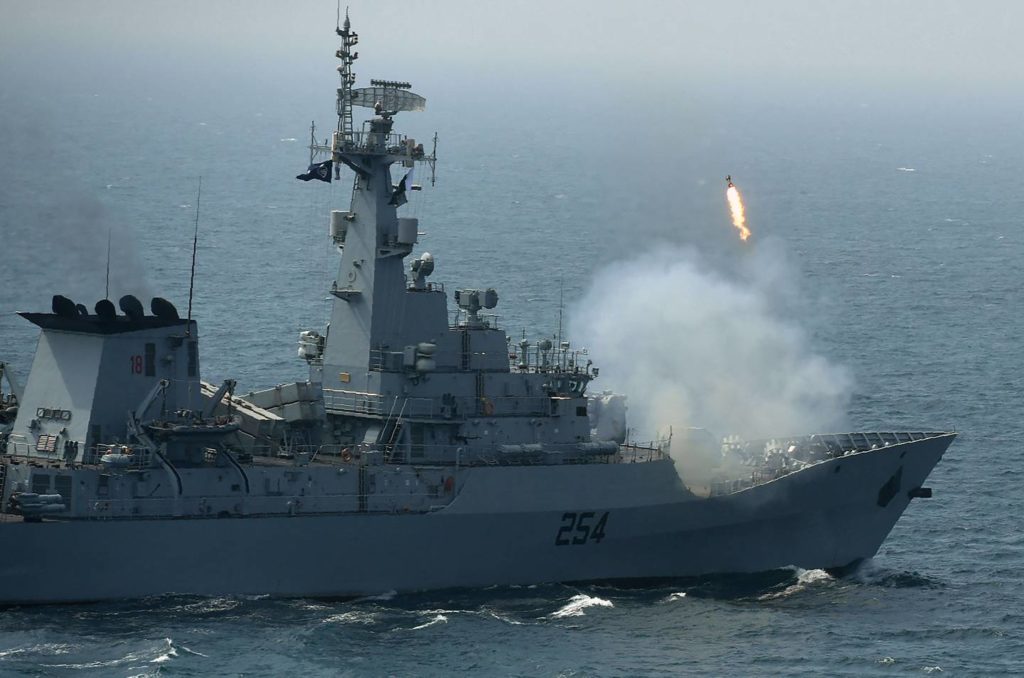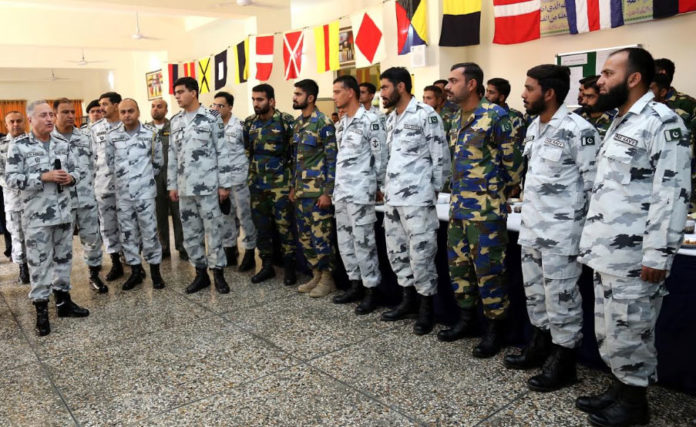The regional dynamics of the Indian Ocean Region (IOR) have changed in the last few decades. Some of the important development includes nuclearisation of the South Asian region, and implied Power Projection by states through multinational alliances and by maintaining their presence in IOR. The scenario is further complicated due to emerging challenges like piracy, terrorism, drugs and human smuggling and environmental issues. Such changing dynamics pose various security threats that need to be addressed as the foremost priority for Pakistan. Due to these issues, Pakistan’s stakes are getting higher owing to the impacts of multifaceted traditional and non-traditional challenges and threats. China’s increased presence in the region, Indo-Iran and Indo-Gulf cooperation, emerging Indo-US strategic partnership are some of the developments that need critical review. Undoubtedly, a comprehensive revisit and formulation of strategy is required to address the aforesaid challenges specially after conceiving One Belt One Road (OBOR) initiative of China of which CPEC is a central part.
Mahan’s words seems axiomatic here that “whoever rules the waves, rules the world” and his research thesis implied on national power & prosperity that solely depend on control of the seas. The same can be clearly witnessed during this century, the close association of national power and prosperity with the control of seas. The fact is notable that mankind has been using the sea routes for trade and commerce for the last three centuries. Geo-political maneuvering and enhancement of economic hegemony through the naval routes also led to sea-wars and battles in history. Moreover, certain facts also demonstrate the significance of seas that two-thirds of the world population lives on coastal regions. More than 85 percent of international trade is seaborne because the transportation via seas is approximately 46 times cheaper than road, 165 times cheaper than air and 12 times cheaper than rail.
As far as the CPEC project is concerned the whole world and especially the entire region has realized the gigantic significance of this project, especially the operationalization of Gwadar Port which is the major part of this project. Regional and extra-regional states have showed their interests to become a part of this project so that they can enjoy the possible benefits particularly commercial and economic benefits. The interests of these states evidently imply the prominence of CPEC. Besides providing a most economical route for trade connectivity between China, Pakistan and rest of the world, CPEC (along with Gwadar Port) will also provide better connectivity to the Central Asian Republics (CARs). It may potentially act as transit and trans-shipment port for Central Asia. Gwadar Port can also be utilized as a trans shipment port for the Gulf States as well. In this way, the project with the port utility will potentially speed up economic activities in the seas and oceans. Ultimately, the increasing economic activities would cause a boost to strengthen the economy of Pakistan.
In order to address the above-mentioned concerns, Pakistan‘s armed forces, particularly the Pakistan Navy, have taken various notable initiatives to ensure the maritime and other associated securities of the CPEC and Gwadar Port. Pakistan Navy is espousing a multi-pronged approach to manage all the challenges and is increasing the overall security apparatus of Gwadar Port including conduct of coastal exercises and security patrols in the required area. Pakistan Navy is also enhancing its Maritime Domain Awareness (MDA), largely engaging itself in Collaborative Maritime Security practices with regional and extra regional navies. Reportedly, Pakistan Navy also indulged in several talks, meetings and negotiations with Chinese and Turkish shipyards for the construction of new surface ships which would be multirole vessels for littoral and coastal defenses.
Most notably, the Navy established a dedicated force namely Force Protection Battalions (FP Bns) consisting of Pakistan Marines for the protection of all Ports of Pakistan. The force size is subject to increase as port related activities keep increasing. Alongwith the conventional and sub-conventional threats, Pakistan Navy is also working full time to counter all the possible asymmetric threats to Pakistani ports and coast. Moreover, the newly established task force TF-88 is said to be equipped with surface ships, aerial surveillance aircraft, fast attack craft and UAVs. This special security force set up for the defense of shore-side facilities and activities will further consolidate the security measurements.

Furthermore, Pakistan Navy has deployed modern state-of-the-art radar networks, electro-optic sensors and pickets which provides constant surveillance and monitoring of maritime areas of Pakistan. This will not only aid to plug up the gaps that may be left in predictable means of protection but will also assist for timely and well-coordinated response to threats posed by non-state actors. Coastal Watch Stations (CWSs) and Joint Maritime Information Coordination Centre (JMICC) are also established by the Pakistan Navy in order to further strengthen the maritime and coastal security by synergizing efforts of all maritime stakeholders, both national and international. Through the establishment of these centers and stations, Pakistan Navy will be able to gather and compile valuable information and to synergize coordinated operations with different security agencies in maritime domain. Pakistan Navy is regularly collaborating with navies of different countries and engaging in various activities including joining 2004 US-led multinational Task Force to advance interoperability and handle maritime crimes.
Keeping in view all these facts, it seemed that the security of CPEC project and especially its association with Gwadar port has become the strategic priority of Pakistan and Pakistan Navy is playing the pivotal role in this security paradigm. The initiatives taken by Pakistan Navy will eliminate all the emanating threats in the maritime domain. Moreover, all the potentials regional, extra-regional challenges to national security will be managed appropriately.
A fair conclusion can be drawn by the above mentioned developments that Pakistan Navy is strategically cognizant with the fact that navies have a pivotal role to play for achieving the country’s economic objectives and fostering a country’s foreign policy objectives. Therefore, Pakistan Navy is continuously endeavoring to develop stronger relations with the regional and extra-regional navies to create a safer security environment so that the economic activity could take place without any threat or risk. Given this appraisal of security measurement of Pakistan Navy, it would be difficult for countries that are maneuvering to sabotage the CPEC project with Gwadar port through all the direct and indirect means.





